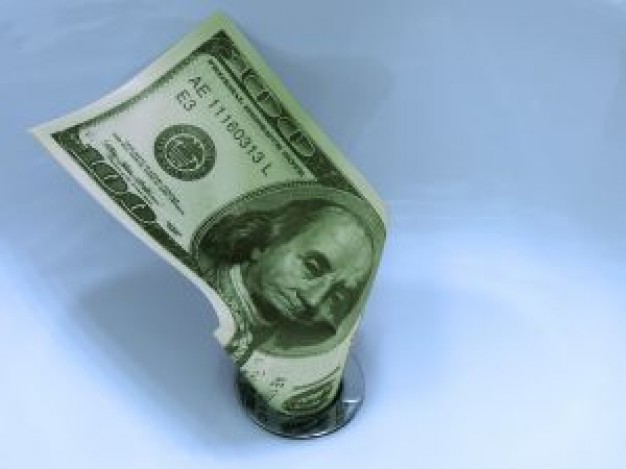|
 Reducing miles driven via routing, fuel and scheduling choices are always high on the efficiency list for most landscape companies because they represent high costs and conversely huge savings through efficient choices. But what about the office? Reducing miles driven via routing, fuel and scheduling choices are always high on the efficiency list for most landscape companies because they represent high costs and conversely huge savings through efficient choices. But what about the office?
Earth Day is a good time to remember that the home base for operations – including the office and shop - also requires energy and is one more place to cut operating costs. Whether you own or lease your building, you typically need lighting, heating, air conditioning, power for office equipment and other services. Following are tips to help maximize energy efficiency and save money while helping the environment.
Heating and air conditioning
- Tune-up heating, ventilating and air-conditioning (HVAC) system with an annual maintenance contract. Even a new ENERGY STAR qualified HVAC system, like a new car, will decline in performance without regular maintenance. A contract automatically ensures that your HVAC contractor will provide pre-season tune-ups before each cooling and heating season. Tune-ups save energy and money, and your system may last years longer with reduced maintenance fees.
- Regularly change (or clean if reusable) HVAC filters every month during peak cooling or heating seasons. New filters usually only cost a few dollars. Dirty filters cost more to use, overwork the equipment and result in lower indoor air quality.
- Control direct sun through windows. During cooling season, block direct heat gain from the sun shining through glass on the East and especially West sides of the facility. Depending on your facility, options such as "solar screens," "solar films," awnings, and vegetation can help keep facilities cooler. Trees can shade the facility and help clean the air. Interior curtains or drapes can help, but it's best to prevent the summer heat from getting past the glass and inside. During heating season, with the sun low in the South, unobstructed southern windows can contribute solar heat gained during the day.
- Use fans to maintain comfortable temperature, humidity and air movement, and save energy year round. Moving air can make a somewhat higher temperature and/or humidity feel comfortable. Fans can help delay or reduce the need for air conditioning, and a temperature setting of only three to five degrees higher can feel as comfortable with fans. Each degree of higher temperature can save about 3 percent on cooling costs. When the temperature outside is more comfortable than inside, a "box fan" in the window, or large "whole facility" fan in the attic can push air out and pull in comfortable air from the outside.
- Plug leaks with weather stripping and caulking. Caulking and weather stripping let you manage your ventilation, which is the deliberate controlled exchange of stuffy inside air for fresher outdoor air.
- Turn off lights and other equipment when not in use. High utility costs often include paying for energy that is completely wasted.
- Replace incandescent light bulbs with ENERGY STAR qualified compact fluorescent lamps (CFLs), wherever appropriate. CFLs cost about 75 percent less to operate, and last about 10 times longer.
- Install switch plate occupancy sensors in proper locations to turn off lighting when no one is present and back on when people return. Avoid installing the sensor behind a coat rack, door, bookcase, etc., as it must be able to "see" an approaching person's motion to turn on the light before or as they enter.
- Adjust lighting to your actual needs; use free daylight during the day.
- To prevent glare, eyestrain and headaches, do not "over-light." Too much light can be as bad for visual quality as too little light - and it costs a lot more.
- Install ENERGY STAR qualified exit signs. These exit signs can dramatically reduce maintenance by eliminating lamp replacement, and can save up to $10 dollars per sign annually in electricity costs while preventing up to 500 pounds of greenhouse gas emissions.
- Consider upgrading to T8 (1" diameter) fluorescent lamp tubes with solid-state electronic ballasts that are more efficient than older T12 (1.5" diameter) tubes with magnetic ballasts.
Office Equipment
- Always buy ENERGY STAR qualified products for your small business. The ENERGY STAR mark indicates the most efficient computers, printers, copiers, refrigerators, televisions, windows, thermostats, ceiling fans, and other appliances and equipment.
- Turning off machines when they are not in use can result in enormous energy savings. There is a common misconception that screen savers reduce energy use by monitors; they do not. Automatic switching to sleep mode or manually turning monitors off is always the better energy-saving strategy.
- To maximize savings with a laptop, put the AC adapter on a power strip that can be turned off (or will turn off automatically); the transformer in the AC adapter draws power continuously, even when the laptop is not plugged into the adapter.
- Turn off equipment. Many people believe that equipment lasts longer if it is never turned off. This incorrect perception carries over from the days of older mainframe computers.
- Consider buying a laptop for your next computer upgrade; they use much less energy than desktop computers, resulting in long-term savings.
- Many appliances continue to draw a small amount of power when they are switched off. These "phantom" loads occur in most appliances that use electricity, such as VCRs, televisions, stereos, computers, and kitchen appliances. In the average home, 75 percent of the electricity used to power home electronics is consumed while the products are turned off and the same can hold true for many offices offices. This can be avoided by unplugging the appliance, or using a power strip and the strip's on/off switch to cut all power to the appliance.
- Unplug battery chargers when the batteries are fully charged or the chargers are not in use.
Courtesy: Small Business Administration
Read more in this issue of Colorado Green NOW:
Earth Day reminder: Green Strategies for Colorado Landscapes
Today is National Day of Service for Front Range volunteers
Planning a more sustainable urban forest
Financial sustainability: Improve loan chances with a bulletproof P&L
|


 Reducing miles driven via routing, fuel and scheduling choices are always high on the efficiency list for most landscape companies because they represent high costs and conversely huge savings through efficient choices. But what about the office?
Reducing miles driven via routing, fuel and scheduling choices are always high on the efficiency list for most landscape companies because they represent high costs and conversely huge savings through efficient choices. But what about the office?